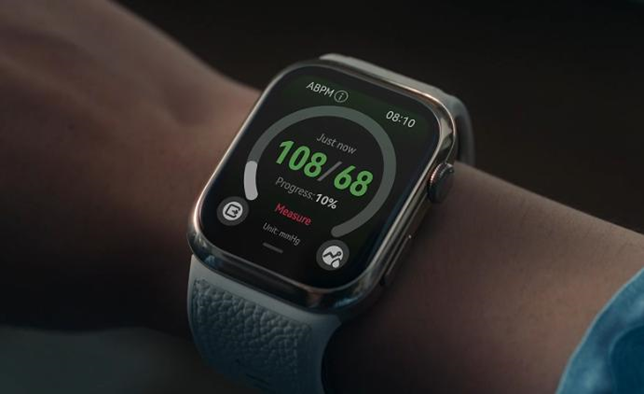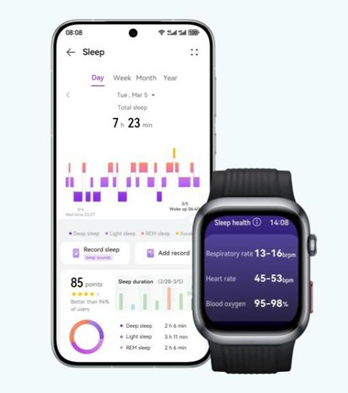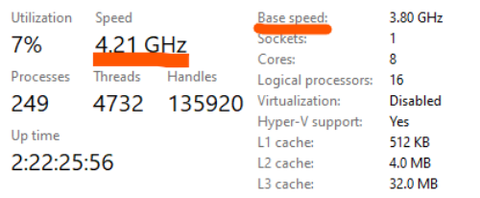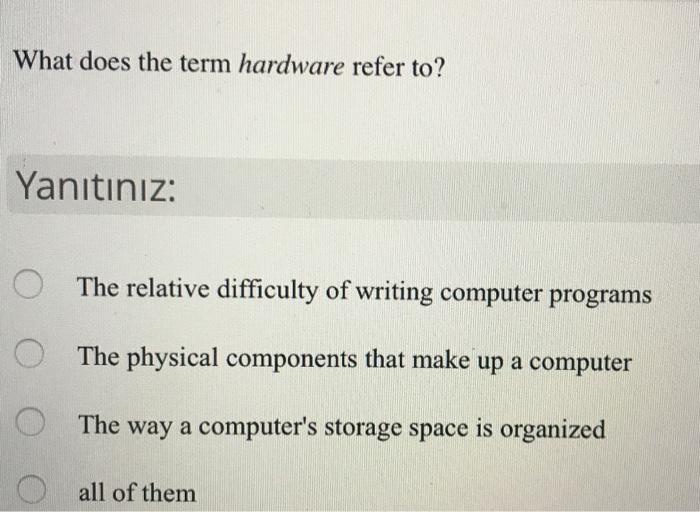Is Blood Pressure Affected by Sleep Quality?
Sleep
plays a vital role in maintaining various aspects of our health, including
heart health and blood pressure. Blood pressure measures the force of blood
against artery walls, and its regulation is crucial to overall well-being.
Surprisingly, the quality and duration of your sleep can significantly
influence your blood pressure levels. In this blog, we’ll delve into the
intricate relationship between sleep and blood pressure, understand the
consequences of poor sleep on hypertension, and explore strategies to improve
sleep quality for better heart health.

The Relationship Between Sleep and Blood Pressure
How Poor Sleep Affects Blood Pressure
Poor
sleep patterns, including insufficient sleep or disrupted sleep, can lead to
increased blood pressure. When you don’t get enough sleep, your body releases
stress hormones like cortisol, which constricts blood vessels, leading to
higher blood pressure. Fragmented sleep, where you frequently wake up during
the night, also disrupts the natural drop in blood pressure that usually occurs
during deep sleep.
Understanding the Science Behind Sleep and
Hypertension
Sleep
regulates various hormonal and metabolic processes crucial for cardiovascular
health. Research shows that people who consistently sleep for fewer than 6
hours a night are at a higher risk of developing hypertension. During deep
sleep, the body repairs blood vessels, and lack of adequate sleep hampers this
process, leading to stiff arteries and elevated blood pressure over time.
Can Lack of Sleep Cause High Blood Pressure?
Short-Term Effects of Sleep Deprivation on Blood
Pressure
Even
short-term sleep deprivation can have noticeable effects on blood pressure. A
single night of poor sleep can lead to temporarily elevated blood pressure
levels the next day. This happens because sleep deprivation activates the
sympathetic nervous system, increasing heart rate and blood pressure.
The Impact of Chronic Sleep Deficiency on Long-Term
Blood Pressure
Chronic
sleep deficiency has more severe consequences, leading to sustained high blood
pressure or hypertension. Over time, persistent lack of sleep can alter stress
hormone levels and inflammatory responses in the body, contributing to
long-term cardiovascular problems, including increased blood pressure, heart
disease, and stroke.
Can Improving Sleep Help Lower Blood Pressure?
Sleep Habits That Can Help Reduce Blood Pressure
Improving
sleep quality can significantly contribute to reducing blood pressure.
Establishing a consistent sleep schedule, creating a restful environment, and
avoiding stimulants like caffeine before bedtime can promote better sleep.
Practices such as mindful breathing, meditation, and limiting screen time
before sleep can also be beneficial.
The Positive Effects of Better Sleep on Heart Health
Investing
in quality sleep has profound impacts on your heart health. Better sleep
reduces the release of stress hormones and allows the body to regulate blood
pressure effectively. Consistently good sleep helps maintain the function of
blood vessels, reduces the workload on the heart, and lowers the risk of
hypertension and related cardiovascular diseases. Devices like the Huawei Watch
D2 can also provide insights into your sleep patterns and blood pressure,
making it easier to track how improved sleep contributes to better heart
health.

Practical Tips for Better Sleep to Manage Blood
Pressure
Lifestyle Changes to Improve Sleep Quality
Several
lifestyle changes can enhance sleep quality and help manage blood pressure.
Regular physical activity, especially earlier in the day, can improve sleep
patterns. Avoiding heavy meals, nicotine, and alcohol before bedtime can also
aid in better sleep. Creating a calming bedtime routine, such as reading or
taking a warm bath, can signal your body to prepare for rest. Monitoring your
sleep with the Huawei Watch D2 can help you identify patterns and track
improvements over time, providing a holistic approach to managing your blood
pressure.
Foods and Supplements for Better Sleep and Heart
Health
Consuming certain foods and supplements can promote better sleep and heart health. Foods rich in magnesium, like nuts and spinach, support muscle relaxation and reduce stress hormones. In addition to these, best food to lower blood pressure includes potassium-rich options like bananas and avocados, which help balance sodium levels in the body. Herbal teas with chamomile or valerian root can have a soothing effect. Additionally, supplements like melatonin can help regulate sleep cycles, but it’s always advisable to consult a healthcare provider before starting any new supplements. Monitoring your heart rate and sleep quality using the Huawei Watch D2 can give you valuable insights into how these dietary changes are affecting your overall well-being.
Conclusion
The
connection between sleep quality and blood pressure is undeniable. Poor sleep
can lead to increased blood pressure and long-term cardiovascular issues, while
quality sleep supports heart health and hypertension management. By adopting
healthy sleep habits and making lifestyle changes, you can improve sleep
quality and, consequently, maintain better blood pressure levels. Prioritizing
sleep not only enhances overall well-being but also safeguards your heart for
the long term. For continuous
monitoring and insights into your blood pressure trends and sleep patterns,
consider using devices like the Huawei Watch D2. Its advanced features ensure
accurate and convenient blood pressure tracking, helping you gain valuable
insights for better health management.







